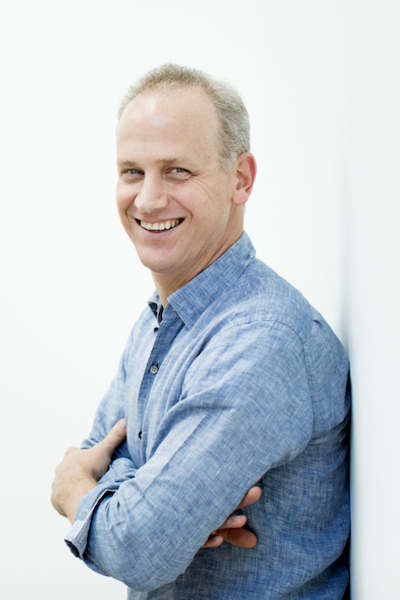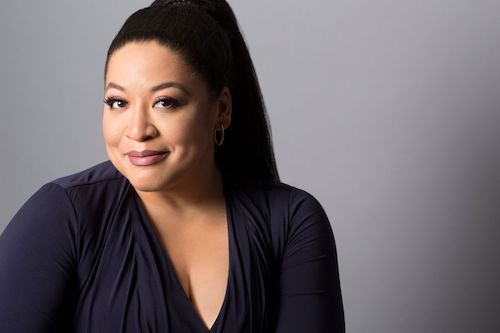Prieto makes outstanding New World debut in user-friendly program

An outstanding conducting debut and a performance of an American classic by a rising young soprano highlighted the New World Symphony’s concert on Friday night at the New World Center. The dance-infused beat of Latin rhythms bookended the program, showcasing the entire ensemble at fever pitch.
Carlos Miguel Prieto is conductor of the National Symphony Orchestra of Mexico and the Louisiana Philharmonic in New Orleans. He also directs youth ensembles, including NYO II and the Youth Orchestra of the Americas.
In his first New World appearance, Prieto was a dynamic presence on the podium, conducting with vigor and tremendous enthusiasm. His stick technique is clear with purposeful gestures always related to the music at hand. He drew energized and focused playing from the ensemble which clearly had great rapport with their guest conductor.
Prieto opened the evening with Hominum: Suite for Orchestra by Mexican composer Gabriela Ortiz. Drawn from a larger work Ortiz wrote in 2017 to celebrate the centenary of the Mexican Revolution, the score is an ear-opener. Replete with shining timbres and coloristic effects, the work’s four movements fly by in seemingly half its 21 minute length. From the initial thematic fragment played by winds and mallet percussion over plucked strings, Latin colors leap out of the orchestral fabric. The scoring for four trumpets, three trombones and six-member percussion battery suggests expansive hues of breaking light.
Two middle movements are more restrained with pensive undercurrents beneath the calming nocturnal tones of “In Water.” The terse rhythmic figurations of “Red,” the concluding movement, recall such Latin orchestral showpieces as Silvestre Revueltas’ Sensaymaya or Oscar Fernández’s Batuque. Prieto molded the quiet sections with subtlety and maintained total control over the propulsive finale, with the percussion getting a real workout.
Samuel Barber’s Knoxville: Summer of 1915 is an idyllic recollection of childhood nostalgia, dreams and fantasy. Based on writer James Agee’s recollections of his childhood in Tennessee, Barber’s 1947 score is one of his finest creations. The lyrical narrative flows at an unhurried pace, the mood ranging from wide-eyed delight at the sights and sounds of small-town life to a hymn-like darkness at the thought of death.

Often sung by lighter-voiced sopranos, it was thrilling to hear Michelle Bradley’s large, creamy instrument take flight in Barber’s spacious phrases. One of America’s finest young singers, Bradley debuts this season at the Vienna State Opera and the opera companies of San Francisco and San Diego in leading Verdi roles.
Bradley’s clear diction and attention to verbal nuance made the projected text hardly necessary. Her top range was free of strain and her exquisite pianissimos were particularly striking. Bradley’s evocation of the final line “but never will tell me who I am” was a deeply moving summation of a lost past. For sheer vocal beauty, dramatic projection and sensitive musicianship, one could hardly imagine Barber’s masterpiece being sung better.
Prieto was on top of Barber’s shifting changes of mood and meter, providing supple accompaniment while never overpowering Bradley. It was an inspired choice to move the harp forward among the violins close to the podium. Chloe Tula’s softly etched harp lines blended wonderfully with the finely textured strings, the violins under concertmaster Margeaux Maloney particularly sleek and transparent.
Dvořák’s Symphony No. 9 in E minor (“From the New World”) is of the most overplayed works in the canon. But Prieto’s reading was distinguished by unhackneyed freshness and acute detailing, restoring the inspiration and instrumental felicities of the Czech composer’s tribute to America.
Unlike many conductors, he did not opt for a fast, thunderous approach. There was plenty of thrust and horsepower in the big climaxes but Prieto stressed the symphony’s melodic warmth. Dynamic shadings were finely graded and wind lines highlighted that often go unheard.
The famous Largo was shaped with spacious eloquence. Prieto brought out the depth of emotion in the iconic English horn solo, played with full, radiant tone by Joo Bin Yi, as if in one long breath. Concertmaster Chelsea Sharpe and cellist Drew Comstock’s beautifully integrated solos highlighted an exceptional ensemble effort.
Prieto kept a tight rein on the final Allegro con fuoco without allowing the movement to become episodic, with brass sonority solid and bereft of harshness. Special honors to Jeesse McCandless’ lovely, reverberant solo clarinet and Matthew Kibort’s controlled mastery on timpani, the big moments strongly conveyed without thumping overemphasis. Prieto drew out the final diminuendo, the chord fading to softness.
Responding to the audience’s ovation, Prieto said, “If you have dinner reservations, please wait fifteen minutes.” He then launched the orchestra into an encore of Arturo Márquez’s Danzón No. 2, played with idiomatic style, crisp accents and high energy by all sections.
There are two remaining performances of this audience-friendly program, one that would make a great introduction for first-time concertgoers to classical music.
The New World Symphony repeats the program 7:30 p.m. Saturday and 2 p.m. Sunday at the New World Center in Miami Beach. nws.edu 305-673-3331
Posted in Uncategorized
One Response to “Prieto makes outstanding New World debut in user-friendly program”
Leave a Comment
Sat Nov 16, 2019
at 2:35 pm
1 Comment
Posted Nov 18, 2019 at 7:43 am by mario
We attended Saturday night’s performance and in all honesty felt that the highlight belonged to the encore. While we enjoyed the rest of the concert, we felt the Barber piece was harder to appreciate. First of all, if we weren’t reading the subtitles we would have no idea what the lyrics were. How is this possible? The Dvorak is a big piece, but very tired of this overused symphony. We did enjoy the freshness of Ortiz’s work and hope to hear more of this programming from the New World. As subscribers of over 10 years, I feel like the concert programming have been declining in recent years.